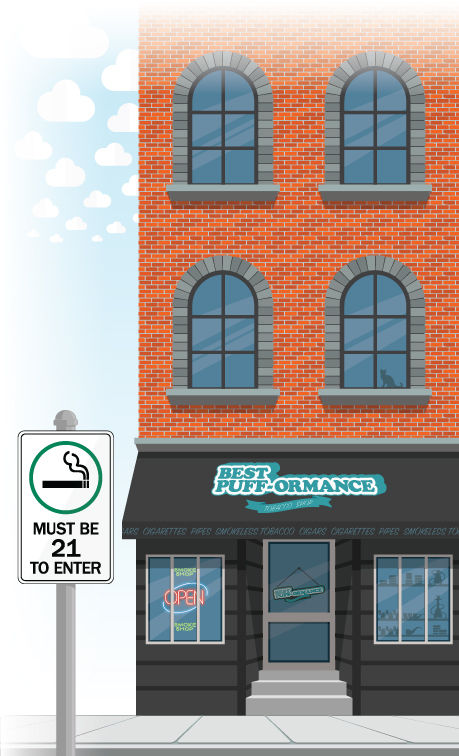Chicagoans may see tax, age increase for tobacco products
smoking story graphic
January 25, 2016
Mayor Rahm Emanuel proposed ordinances on Jan. 13 that would increase the legal age to purchase tobacco products from 18 to 21 and raise taxes on many forms of tobacco.
The ordinances are still pending City Council approval, but if passed, they would set minimum prices and pack sizes for tobacco products, according to the Jan. 13 press release, which cites research showing low tobacco prices the correlation between increased tobacco use among youth.
“Youth smoking is now at a record low in Chicago thanks to a series of reforms put in place to crack down on marketing tactics employed by big tobacco companies,” Emanuel said in the press release. “These reforms introduced today will help today’s youth make healthy choices and refrain from the harmful effects of a tobacco habit.”
According to the press release, four out of five smokers start before they are 21, and cities like New York, Boston and Chicago suburb Evanston have already increased the buying age to 21.
Under the ordinance, minimum prices for tobacco products would be $11.50 for a pack of cigarettes, a pack of little cigars and a 0.65-ounce package of roll-your-own tobacco, $1.70 for a large cigar and $4 for an ounce of smokeless tobacco, the press release stated.
In addition, the ordinance, which would exempt expensive cigars, would require little cigars be sold in a minimum pack size of 20 and big cigars in packs of four while banning free samples and discounts that put the price below the minimum, according to the release.
A 20-pack of little cigars would go from costing $5.79 to $8.79, a two-pack of cigars would increase from $2.25 to $4.05, a small pouch of roll-your-own tobacco would increase in price from $7.25 to $11.54 and smokeless tobacco for a standard 1.3 ounces would increase from $4.19 to $6.35, according to the press release.
The press release specifies that the $6 million generated by the tax will be used to fund a universal freshman orientation program that would provide students in district-run schools a weeklong program to acclimate to their new schools.
Sydney Powell, a junior business & entrepreneurship major, said the potential minimum age increase is not enough to stop young adults from smoking. She said people who are underage will find a way to get cigarettes and tobacco products the same way they get their hands on alcohol prematurely.
“We become adults at 18, we move away from our parents, and if we decide to ruin our bodies with smoking, that’s our decision,” Powell said.
Mark Brticevich, coordinator of Fitness, Athletics & Recreation at Columbia, said he agrees that the proposed ordinances may not stop those under 21 from smoking.
“We tried prohibition before, we’ve tried making things difficult for people—if people want to smoke, if people want to drink, if people want to do drugs, they will do it,” Brticevich said.
Powell said she worries the ordinances may encourage some adults under 21 to purchase fake IDs so they can buy tobacco products.
Brticevich also said he thinks young people will go to great lengths to keep smoking.
“Once a person is addicted, they’ll probably spend whatever it takes to keep their addiction going,” he said.
Brticevich, who started smoking when he was 10 and continued for 20 years, said he thinks more time needs to be spent discussing the consequences of smoking.
“Part of the problem in our education system is that we should be teaching health that is age-appropriate every single year, so kids early on understand the dangers of drugs and smoking without making it the forbidden fruit,” Brticevich said.
He said most people want to smoke to seem cool or to help them relax, and such individuals need healthy alternatives like exercise, meditation, hobbies and stress relief mechanisms like using Silly Putty or stress balls to keep their hands busy.
“As an ex-smoker, you want to keep the hands busy, you want to keep the mind busy and the mouth busy, preferably not busy on consuming a lot of different foods,” Brticevich said. “If you haven’t smoked, don’t start. You’re not missing anything, and if you do smoke, your life depends on quitting.”








